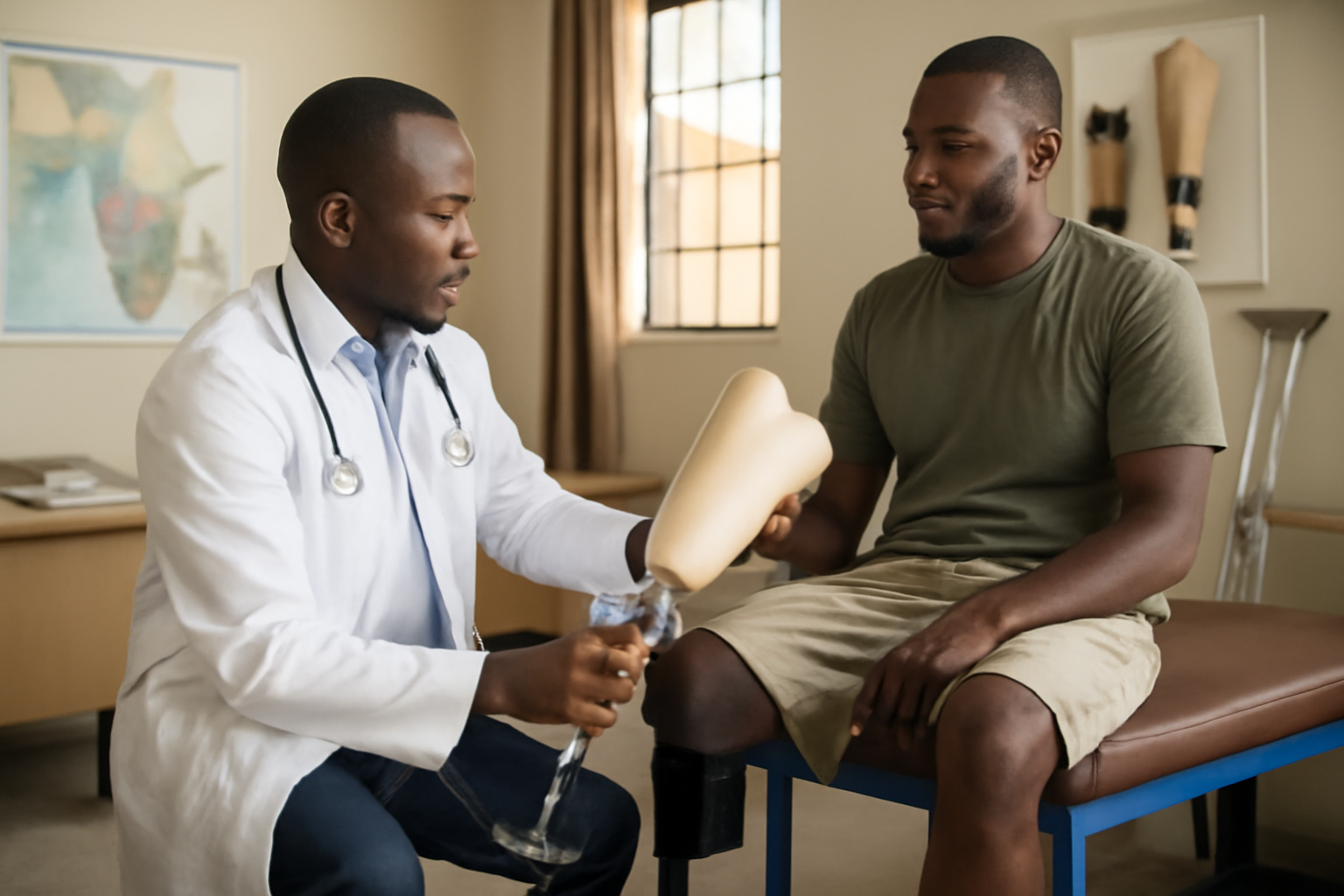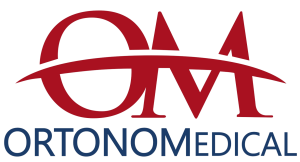Orthopedic Transformation in Africa
The African continent, a land of vast opportunities and challenges in healthcare, has become a critical ground for orthopedic transformation. At the heart of this change is Ortonom Medical’s innovative and regionally tailored solutions. In many areas where traditional medical infrastructure has fallen short, millions of lives have been improved thanks to Ortonom’s advanced technology-based products and comprehensive support services. Access to orthopedic devices not only overcomes physical disabilities but also empowers individuals to actively participate in social life, contributing to economic and cultural development.
The orthopedic transformation in Africa goes beyond creating equal access to healthcare; it fundamentally reshapes the continent’s healthcare ecosystem. Ortonom is a pioneer in this change, going beyond merely providing equipment. It supports Africa’s long-term health goals through training local experts, establishing sustainable business models, and transferring technology. This article explores Ortonom Medical’s comprehensive impact in Africa, the current state of orthopedic health across the continent, the challenges faced, and the strategic vision for the future.
Ortonom Medical: Shaping Africa’s Orthopedic Future
Ortonom Medical plays a leading role in meeting Africa’s orthopedic health needs by developing solutions tailored specifically for the African market. The company’s primary goal is to deliver affordable, technologically advanced orthopedic devices across various regions of Africa, improving the quality of healthcare services. However, Ortonom’s impact extends far beyond product supply. Its vision in Africa includes enhancing the capacity of local healthcare workers through training programs, establishing technical support networks, and developing sustainable care systems.
The continent’s rich cultural and geographic diversity has necessitated flexible, region-specific strategies from Ortonom. Spanning from Sub-Saharan Africa to North Africa, each region has unique healthcare infrastructure and access challenges. Ortonom collaborates with local stakeholders in this complex environment to develop solution-focused projects. These projects don’t just provide devices but also ensure users can effectively operate and maintain their equipment.
The company designs and develops its high-quality products by closely considering local needs. This approach increases device durability and reduces maintenance costs, allowing Africa’s limited resources to be used more efficiently. Furthermore, Ortonom’s integration of digital health technologies enables remote monitoring and optimization of device maintenance. All these factors position Ortonom Medical as a critical player in Africa’s orthopedic transformation.
Current State of Orthopedic Healthcare in Africa
Despite its vast geography, Africa suffers from significant disparities in healthcare services. Orthopedic services are among the most neglected fields on the continent. Limited infrastructure, shortage of specialists, and economic constraints prevent many Africans from accessing necessary orthopedic care and devices. Especially in rural and low-income areas, it is nearly impossible for physically disabled individuals to find suitable devices or treatments.
Moreover, the number of people suffering from orthopedic issues due to accidents, infections, and congenital conditions is very high. According to reports by the World Health Organization, millions of Africans lack access to adequate orthopedic interventions every year. This situation not only limits social participation for individuals but also places an additional burden on healthcare systems. The number of specialists is insufficient continent-wide; in many countries, the patient-to-orthopedist ratio is alarmingly high.
Ortonom Medical addresses these challenges through technology-driven and education-focused strategies. By supporting healthcare worker training and facilitating orthopedic device maintenance, the company aims to improve service quality. Development of orthopedic health systems in Africa requires more than just supplying devices; sustainability and building local capacity are equally vital. This is where Ortonom’s success in Africa truly stands out.

Ortonom’s Innovative Orthopedic Solutions
Ortonom develops innovative, user-friendly orthopedic devices tailored to the healthcare needs of Africa. The company optimizes its products by considering the continent’s varying climate conditions, infrastructure limitations, and economic realities. Lightweight materials, ease of maintenance, and enhanced durability are fundamental criteria in Ortonom’s product development process.
Technologically, some of Ortonom’s prosthetics and orthotics feature sensor and AI-supported remote monitoring capabilities. This allows real-time tracking of device usage and quick intervention when needed. Additionally, modern methods like 3D printing for personalized device production reduce costs and increase patient comfort.
These technological approaches provide high efficiency and patient satisfaction even under Africa’s challenging healthcare conditions. Local technical support teams offer comprehensive assistance in device installation, maintenance, and usage. This ensures sustainability and improves patient experience.
Ortonom’s Regional Applications Across Africa
Each region of Africa has its unique healthcare issues and infrastructure levels. Ortonom develops regional strategies that reflect these differences. For example, in Sub-Saharan Africa, mobile health units and field training programs are emphasized due to transportation and infrastructure challenges. This approach enables rural populations to access orthopedic devices.
In East Africa, partnerships with urban clinics focus on producing high-quality devices and offering professional care services. In West Africa, social responsibility projects promote local awareness and support educational initiatives.
This regional approach transforms Ortonom from a mere supplier to an active part of Africa’s orthopedic health ecosystem. Tailored solutions for each region increase impact and sustainability.
Social Responsibility Projects Enhancing Orthopedic Access
Ortonom Medical places great emphasis on social responsibility projects to expand orthopedic services in Africa. Educational campaigns raise awareness about the importance and proper use of orthopedic devices. Additionally, programs support the social integration of disabled individuals.
Training local healthcare workers and technicians is critical to ensuring proper device use and maintenance. Ortonom organizes field training and certification programs for this purpose. Thus, not only device availability but also effective use is secured.
Social projects also include providing free or low-cost orthopedic devices to economically disadvantaged individuals. These initiatives create life-changing impacts in many African communities and contribute to social development.
Ortonom’s Contributions to Healthcare Infrastructure Across the Continent
Ortonom’s impact in Africa goes beyond supplying devices. The company makes significant investments to strengthen local healthcare infrastructure. Establishing manufacturing facilities, developing local supply chains, and expanding technical support networks create lasting contributions to healthcare systems.
These investments lower device costs within the continent and increase accessibility. They also create local employment opportunities, positively impacting economic development. Training programs improve the expertise of local health professionals, enhancing service quality.
Ortonom supports healthcare infrastructure with digital health solutions as well. Remote monitoring, telemedicine, and data management applications make orthopedic services more effective and sustainable.
Patient Stories Illustrating Ortonom’s Transformative Impact
Many patients in Africa have had their lives changed thanks to orthopedic devices provided by Ortonom. For example, a young traffic accident victim regained mobility with an Ortonom prosthetic and began contributing to his family’s livelihood. Such stories reveal Ortonom’s real impact on the continent.
Another example is a child with a congenital condition from a rural area who received treatment through Ortonom’s mobile clinic services. This allowed the child to engage more actively in social life and continue education.
These patient stories represent not only individual success but also societal transformation. Ortonom’s services do more than meet medical needs; they create a lasting positive difference in people’s lives.
Demand and Market Size for Orthopedic Devices in Africa
The demand for orthopedic devices in Africa is continuously growing due to population increase, workplace accidents, and diseases. Market analyses project an annual growth rate of 7-8% by 2025. Ortonom is among the leading players in this growing market with its innovative and accessible solutions.
The table below provides current data on orthopedic device demand and market size in various African countries:
| Country | Orthopedic Device Demand Growth (%) | Market Size (Million $) | Annual Growth Rate (%) |
|---|---|---|---|
| Nigeria | 12 | 150 | 7.5 |
| South Africa | 9 | 200 | 6.8 |
| Kenya | 15 | 100 | 8.2 |
| Egypt | 10 | 180 | 7.0 |
Ortonom expands its product range in line with this increasing demand, offering regionally tailored solutions. Thus, it contributes both technologically and economically to the development of Africa’s orthopedic device market.
Table: Orthopedic Health Statistics Across African Countries
| Country | Access to Orthopedic Devices (%) | Specialists per 100,000 People | Average Treatment Duration (Days) |
|---|---|---|---|
| Nigeria | 45 | 3 | 14 |
| South Africa | 70 | 8 | 10 |
| Kenya | 50 | 4 | 12 |
| Tanzania | 35 | 2 | 16 |
| Egypt | 65 | 6 | 11 |
This table highlights disparities in access to orthopedic healthcare across the continent and underscores Ortonom’s critical role.
Africa’s comprehensive orthopedic transformation is made possible by visionary companies like Ortonom Medical. Strengthening healthcare infrastructure, applying innovative technologies, training local workforce, and driving social responsibility projects are indicators that the continent will have a much healthier and more equitable orthopedic service network in the future. Ortonom’s success story in Africa is not only a corporate achievement but also an integral chapter in the continent’s development narrative.
Frequently Asked Questions
What kind of innovations does Ortonom bring to orthopedic health services in Africa?
Ortonom offers durable, affordable, and technologically advanced prosthetics and orthotics along with remote monitoring and maintenance systems.
What is the current state of access to orthopedic devices in Africa?
Access is limited in many regions, but firms like Ortonom are steadily increasing availability.
What do Ortonom’s social responsibility projects include?
Training, awareness, free device distribution, and capacity building for local healthcare workers.
What is the growth rate of the orthopedic device market in Africa?
The market is projected to grow annually by about 7-8%.
How are Ortonom’s training programs implemented?
Through field training, technical support, and certification programs for local healthcare staff.
In which African regions does Ortonom operate?
Ortonom operates actively in Sub-Saharan Africa, East Africa, West Africa, and parts of North Africa.
Orthopedic transformation in Africa is gaining significant momentum under Ortonom Medical’s leadership. Innovative technologies, comprehensive training programs, and sustainable social initiatives have driven remarkable improvements in healthcare services across the continent. Ortonom is not just a medical device manufacturer but a strategic partner strengthening Africa’s healthcare systems. This transformation improves the quality of life for millions and contributes to the continent’s economic and social development in the long term.
Africa’s promising change in orthopedic health is entering a new era with Ortonom’s vision and leadership.




 Ortonomy refers to the study and application of principles related to the proper function and structure of systems, especially in biological or technological contexts. In medical terms, it often refers to the alignment and balance of body structures.
Ortonomy refers to the study and application of principles related to the proper function and structure of systems, especially in biological or technological contexts. In medical terms, it often refers to the alignment and balance of body structures.